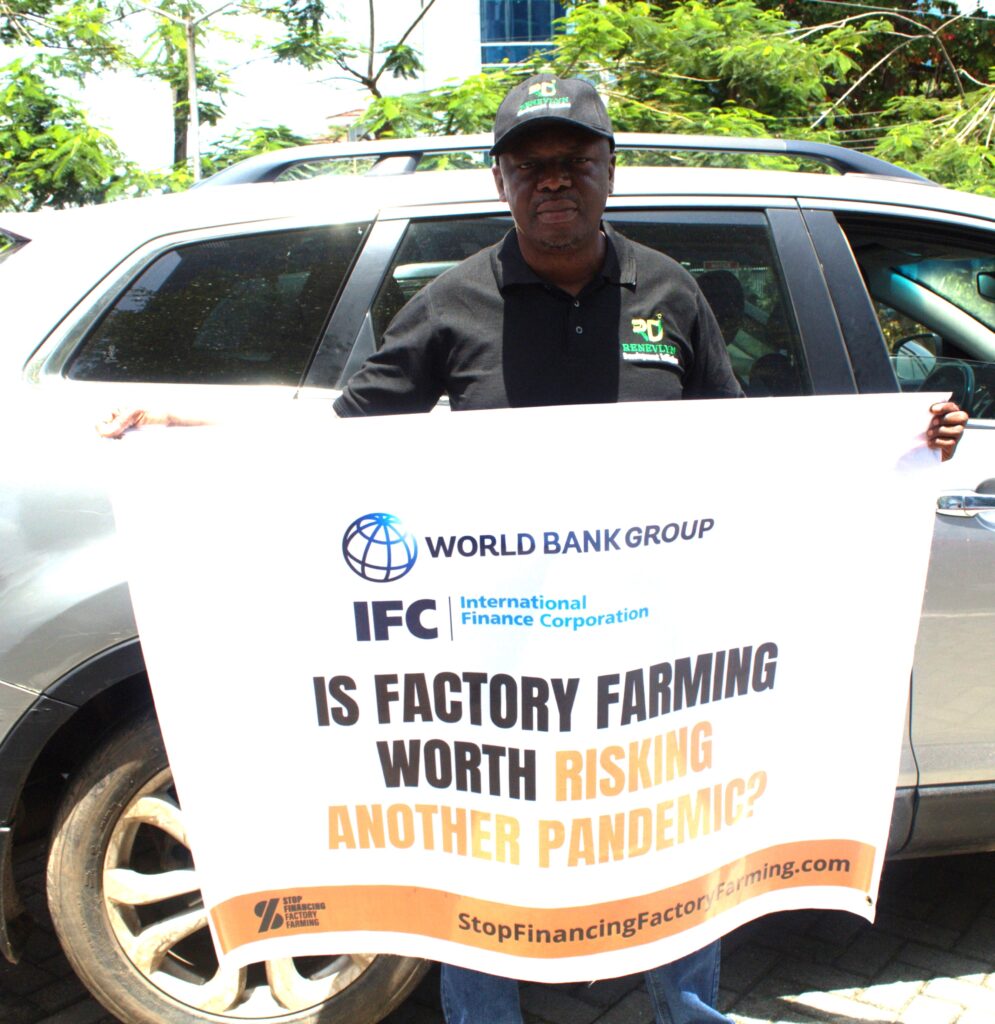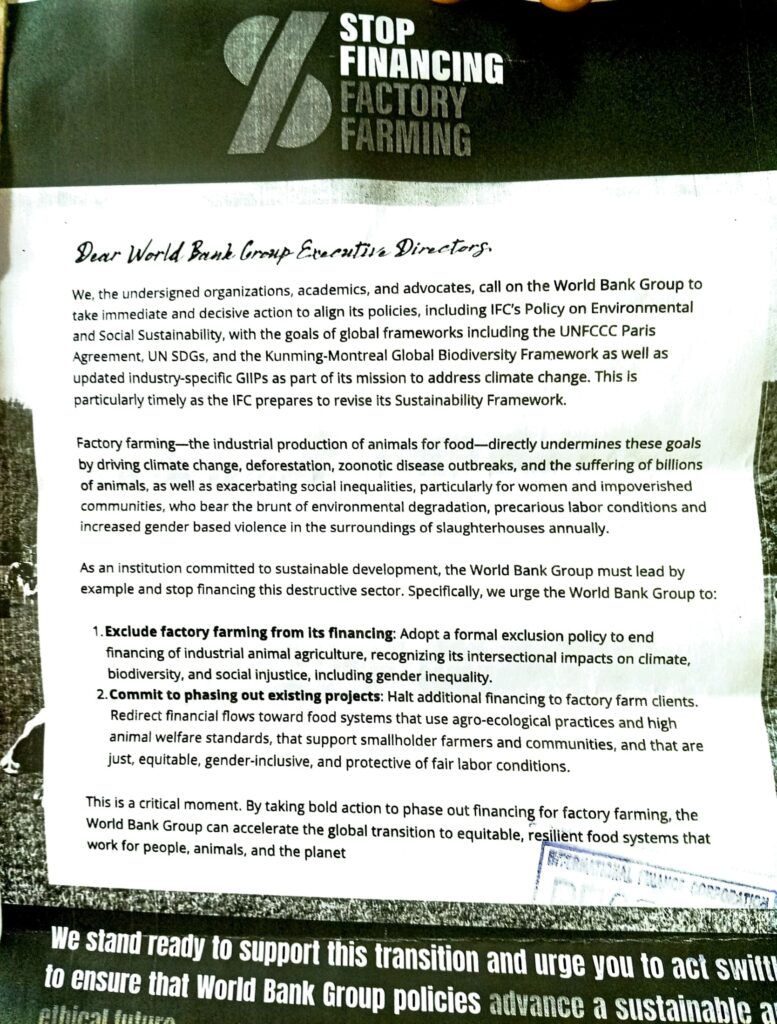By Bunmi Yekini

The Renevlyn Development Initiative (RDI) has called on the World Bank Group to halt its financing of industrial animal agriculture, citing its devastating impacts on the environment, public health, and human rights. The appeal was made on Wednesday through a letter delivered to the World Bank’s Lagos office, as part of a coordinated global day of action against factory farming.
The letter, backed by over 250 organizations, academics, and advocates from 14 cities across five continents, demands that the World Bank and its private sector arm, the International Finance Corporation (IFC), adopt a formal exclusion policy against factory farming and redirect investments toward sustainable, high-welfare food systems.
“Nigeria should not be complicit in financing this harm,” said Philip Jakpor, Executive Director of RDI. “Nigeria is a shareholder of the World Bank, which means our government plays a role in deciding where money is invested. We do not want our public funds supporting industrial factory farms that harm communities, animals, and the planet.”
RDI criticized recent World Bank-linked investments, including a $1.25 billion financing package for Indorama Eleme Fertiliser and Chemicals Limited, a company allegedly responsible for environmental degradation in Rivers State. The group also pointed to Nigeria’s $2.5 billion MoU with Brazilian meat giant JBS to build six production facilities as further evidence of looming environmental risks.

Jakpor added, “The World Bank and IFC’s financing of factory farms contradicts their commitments to the UNFCCC Paris Agreement, UN SDGs, and the Kunming-Montreal Global Biodiversity Framework.”
Highlighting concerns beyond Nigeria, RDI referenced a proposed IFC loan of $5.44 million to Senegalese poultry producers, which would fund a major feed mill reliant on imported soy and maize—raising additional environmental and supply chain issues.
“What we are documenting in Nigeria and across Africa is alarming,” said Dominion Amupitan, Project Assistant at RDI. “Nigeria must lead the way in rejecting these investments. We need our government to use its World Bank vote to stop factory farming investments.”
Amupitan concluded, “This is a critical moment for the Bank to transition to funding sustainable, just food systems that protect people, animals, and the environment.”
The Lagos action joins global protests calling for an end to industrial animal agriculture subsidies, with support from international groups including Friends of the Earth US, Sinergia Animal, and World Animal Protection.
